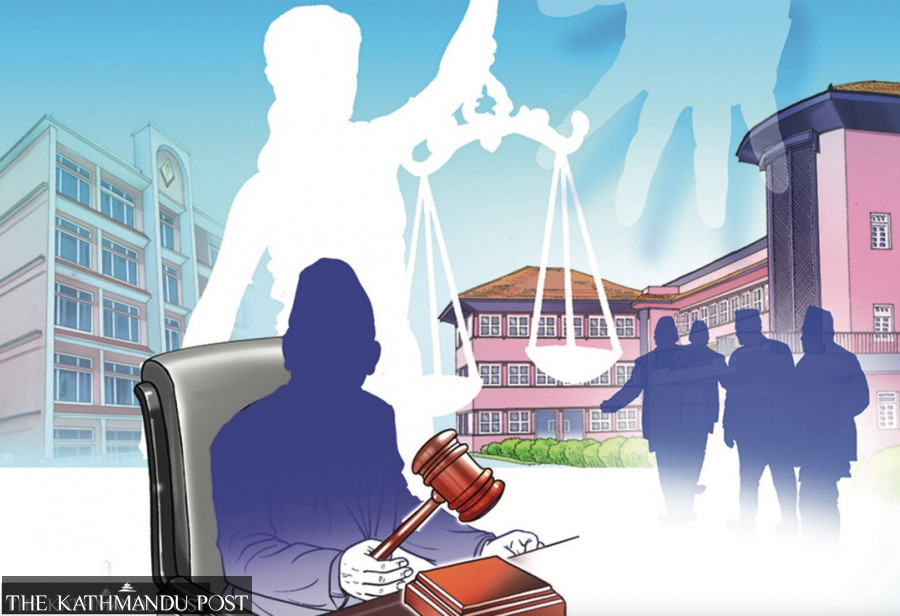National
Chiefs of eight constitutional commissions call for talks to end Supreme Court crisis
Among 39 issuing the statement, 36 were recommended for appointment in December last year and in May as per the ordinance to amend the Constitutional Council Act.
Binod Ghimire
As the ongoing standoff in the judiciary reaches three weeks, leaders of eight constitutional commissions have urged the parties concerned to hold dialogue to end the crisis.
The chairpersons and members of eight different commissions have said the ongoing stalemate in the judiciary has deprived the people of their human and fundamental rights to access justice while creating hurdles in the rule of law and rule of constitution.
Issuing a joint statement on Tuesday, 39 chairpersons and members from the National Human Rights Commission and seven inclusion commissions have said the obstruction in the judiciary, no matter which party has caused it, cannot be deemed correct.
“Since effective justice delivery is possible only through collaboration, coexistence and coordination between the bar and the bench, the current rift between the bar and the bench is unfortunate,” reads the statement. “There is no alternative to adopting the legal, constitutional and due process to end the ongoing standoff in the judiciary which has invited challenges to the constitution and democracy.”
The statement from the constitutional commissions comes a day after Chief Justice Cholendra Shumsher Rana urged legal professionals for dialogue.
Justice delivery at the Supreme Court has been obstructed since October 25 after justices started boycotting benches as part of their protest against Chief Justice Rana. The Supreme Court Bar Association and Nepal Bar Association then joined the protest.
The lawyers have now made Rana’s resignation their bottom line while justices are seeking a middle path. Four of the court’s 19 justices on Tuesday decided to hear cases amid lawyers’ call to not attend the benches.
The chief justice and other justices are equally responsible for justice delivery as the chief justice, justices, court officials and the Bar constitute the judiciary, the statement says.
“It is necessary that all those concerned become flexible in their positions to resolve the crisis through dialogue,” reads the statement.
A majority among 39 chairs and members of the constitutional bodies, who issued the statement, were recommended as per an ordinance to amend the Constitutional Council (Functions, Duties, Powers and Procedures), Act, 2010 in December last year and May. The meetings of the Constitutional Council which recommended them to their posts were attended by Chief Justice Rana.
They were appointed without parliamentary hearings.
Petitions challenging their appointments are sub judice in the Supreme Court.
One of the accusations Rana faces is that he demanded shares in the appointments to the constitutional commissions and delayed the hearings of the petitions challenging the appointments.
“The parties concerned must internalise the fact that prolonged deadlock will not just invite a threat to the constitution but also to the entire democratic system,” reads the statement. “There is a need to follow the legal and constitutional way to end the standoff.”




 13.12°C Kathmandu
13.12°C Kathmandu














